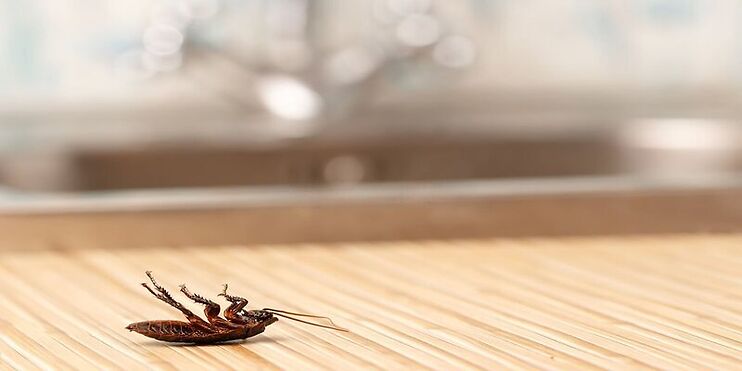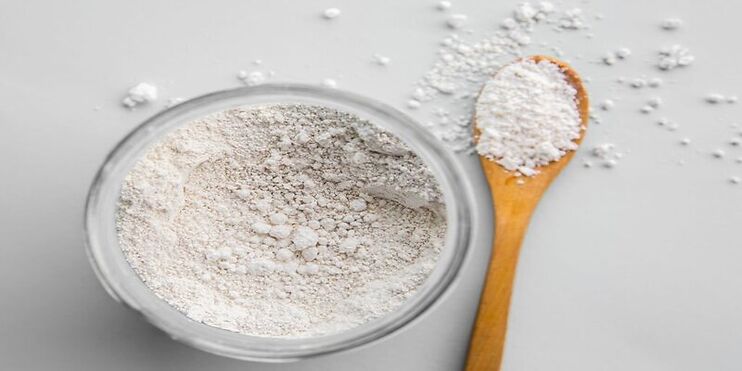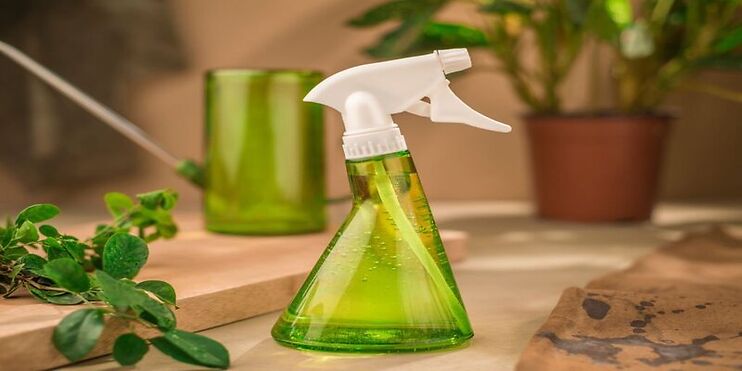Top 15 Eco-Friendly Pest Control Methods
Tips on how you can get rid of annoying pests by eco-friendly techniques

We’ve all heard horror stories about how toxic chemicals used to kill pests can harm our health and even cause cancer. But we also hear Eco Pest Control methods are safer for humans and animals. But is it the same for every city or location you are in? And for every method used?
Many Eco-friendly pest control techniques and safe agricultural products are effective and safe for both humans and animals. In addition, these methods are often safer than traditional chemical pesticides because they target specific insects without harming beneficial species.
I’ll review 15 popular Eco-friendly pest control tactics and explain why each method works. Then I’ll share with you my top picks for the best Eco-friendly pest control products.
Cedar oil
Cedar oil is a natural insect repellent that works well against many pests, including ants, cockroaches, spiders, mosquitoes, fleas, ticks, bed bugs, termites, and wasps. It is extracted from cedars (also known as cypresses) and contains essential oils that repel insects. In addition, the scent of cedar oil is potent and lasts long after application.
There are several ways to use cedar oil to control pests. One method is to spray cedar oil directly onto infested areas. Another option is to mix cedar oil with water and spray the mixture onto infested areas. Yet another option is to add cedar oil to a homemade bug bomb.
Instead of using rodent bait, use rodent traps
Rodent control methods are often controversial because they involve killing animals. But there are many Eco-friendly alternatives to traditional rodent control methods. One option is to use rodent traps instead of poisons. Traps work well for mice and rats but not squirrels. So if you’re looking for ways to keep rodents out of your home, consider using rodent traps instead of poison.
Several types of baits are available, including peanut butter, cheese, and oats. Some baits contain toxic chemicals that cause death. Others are made from natural ingredients that aren’t harmful to humans or pets. Remember that baits expire after a certain amount of time. Check the label to determine how long each type of bait lasts. And once the bait expires, dispose of it properly.
Sticky boards for insects
There are many different types of sticky boards available. Some are made of plastic, some are made of wood, and others are made of paper. Use a sticky board, and place it over any entry point where pests enter your home. Then, when you notice pest activity, remove the board and dispose of it properly.
Sticky boards are great for keeping pests out of your home. They’re inexpensive, effective, and Eco-friendly. They work well because they trap insects against a surface, making them unable to fly away. The sticky board traps insects until they die, leaving no mess behind.
Store woolens in your freezer
Freezing woolen kills pests by causing them to dehydrate and die. Mothballs work similarly, although they kill insects by suffocating them. The cold temperatures inside the freezer cause moisture to condense outside the woolen, killing bugs near it.
While these methods aren’t 100% effective, they’re still better than conventional pesticide treatments. And since they’re non-toxic, they pose no risk to humans or pets. So if you’re looking for eco-friendly pest control methods, consider freezing your woolens instead of throwing them away.
Soapy water for ants
Soap is an excellent natural ant repellent because it contains surfactants (surface active agents) that disrupt the surface tension of water. Soap and water work well because it’s cheap, effective, and non-toxic. Plus, it doesn’t require any special equipment.
All you need is some dish washing liquid (or laundry detergent) and a gallon of water. To control ants, pour the solution onto the ant trail and wait until they are gone. This causes ants to lose their grip on surfaces and fall off. Also, ants dislike the smell of soap. So when you spray your home with soapy water, the ants will be repelled and won’t return.
Consider using vinegar or lemon juice and water
Vinegar is a natural pesticide that kills pests naturally. It works well against ants, roaches, spiders, fleas, ticks, mosquitoes, and many other insects.
Lemon juice is another effective pest control method. It works well against cockroaches, flies, ants, wasps, bees, and many other bugs that love to feed on decaying organic matter. Both white vinegar and lemon juice work well when mixed with water.
Mixing these two ingredients creates a potent, safe mixture for humans and pets. The mixture should be put in a spray bottle to be sprayed directly onto the infested area. This mixture will kill any insect within minutes.
Use beer bottles for slugs and snails
Beer traps are an excellent Eco-friendly pest control method. They’re inexpensive, effective, and safe for humans and pets. They work by attracting pests to a sticky surface where they become trapped. The most common beer trap uses beer bottles filled with water.
To attract pests, place the bottle near organic food sources, such as bird feeders, pet bowls, garbage cans, compost piles, etc. Then, when pests crawl onto the bottle, they drown in the water inside.
Electronic “Slug Fence”
Electronic slug fences are great for controlling slugs in gardens and yards. They’re inexpensive, easy to use, and effective at keeping pests away. They work by emitting ultrasonic waves between 20 kHz and 40 kHz. The frequency is too high for humans to hear but not enough to harm plants. Slugs are attracted to the sound waves and become trapped inside the fence.
However, electronic slug fences could be better. Unfortunately, slugs can still find ways through them, especially when there’s heavy rain. Therefore, you may need additional protection, such as a physical barrier.
Diatomaceous earth

Diatomaceous earth (DE) is a natural product made from fossilized diatoms. It works great at killing pests because it contains silica, silicon dioxide, and calcium carbonate. DE is safe for humans and pets and doesn’t leave any harmful residue behind.
DE is effective against ants, cockroaches, fleas, ticks, mosquitoes, spiders, wasps, bees, and many other insects. It kills them by suffocation when they come into contact with it. DE is also effective against mice, rats, gophers, and other rodents. It kills them by causing internal bleeding and organ failure. DE is Eco-friendly. It uses no toxic pesticides, herbicides, or fertilizers. It requires no water, and it won’t pollute soil or groundwater.
Solar-powered pest control equipment
Solar-powered pest control equipment uses sunlight to kill insects. The sun heats the surface of the device, killing bugs when they land on it. This method works well because most pests avoid direct sunlight.
There are many different types of solar-powered pest control devices available today. Some use heat to kill pests. Others use light. But whatever style you choose, pick one safe for humans and pets.
Grow a healthy ecosystem of pest control
Planting pest control plants in your garden is a great way to keep pests away from your home. The most common pest control plants include marigolds, chives, basil, oregano, rosemary, thyme, catnip, lavender, mint, sage, lemon balm, peppermint, eucalyptus oil, and many others.
These plants attract beneficial insects, including ladybugs, lacewings, hoverflies, parasitic wasps, and tachinid flies. Unfortunately, these insects prey on harmful insects, such as aphids, caterpillars, beetles, earwigs, grasshoppers, leafhoppers, spiders, thrips, and whitefly. Also, try growing pest control plants indoors. They can grow well in containers, and you can quickly move them inside during cold weather.
Season Your Window Sills
Window sills are often overlooked when it comes to pest control. However, this area of your home is where pests spend most of their lives. So, keeping it clean and free of food sources makes sense.
Seasoning your windowsill with cinnamon, paprika, cajun seasoning, chili powder, garlic, onion, oregano, basil, thyme, rosemary, sage, bay leaves, nutmeg, cloves, ginger, cardamom, curry, turmeric, black pepper, red pepper flakes, white pepper, sea salt, kosher salt, Himalayan salt, smoked salt, etc., is a great way to keep pests away from your home. These natural remedies are inexpensive, easy to apply, and safe for children and pets.
FAQs

How are pests getting into my home?
Pest infestation is a serious problem for homeowners everywhere. There are many ways pests can enter your homes, such as through cracks in windows and doors, holes in siding, and gaps around pipes and wiring. Once inside, problems can cause damage to your property and pose health risks to you and your family. Fortunately, there are steps you can take to prevent pests from entering your home in the first place. Here are some tips to keep pests away from your home.
What is the environmental effect of pests?
Environmental impacts of pests include everything from the damage caused by insects to the effects of climate change. Insects cause billions of dollars worth of damage annually, and climate change is having a significant impact on insect populations around the world. In addition, some species of insects adapt to warmer temperatures, and others move northward due to changes in weather patterns. These factors mean that we may see increased pests in the coming decades.
What are the health risks of having pests at home?
Many different kinds of pests can cause problems in homes. These include ants, cockroaches, spiders, bedbugs, fleas, mosquitoes, ticks, and moths. These pests can carry diseases such as malaria, typhoid, dengue, West Nile virus, and Lyme disease. While some of these diseases may seem fun to read about, they can be deadly serious. People who contract any of these diseases could die from complications related to the illness. To avoid contracting these illnesses, keeping your home free of pests and avoiding toxic pesticide exposure is best. There are ways to prevent pests from entering your home, so you should take steps to protect yourself and your family.
Conclusion
In conclusion, if you have pests around your home, you should consider using biological control and eco-friendly methods, which are natural enemies of pests. These include natural remedies like vinegar, baking soda, essential oils, and even garlic. But if you’re looking for something more permanent, you should also check out some of the most popular pesticides available today. They’re safe for humans, pets, and the environment and won’t harm beneficial insects either.…
